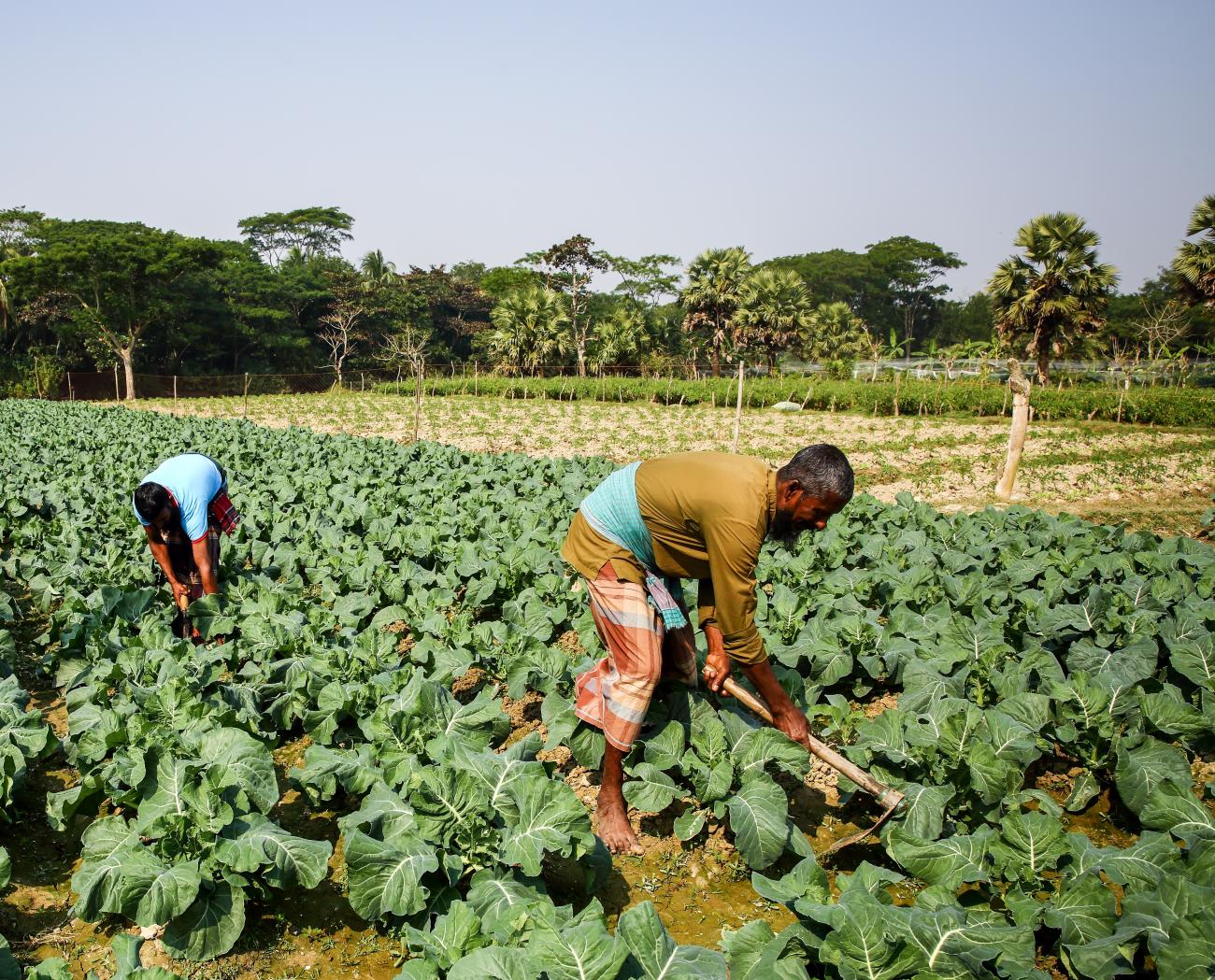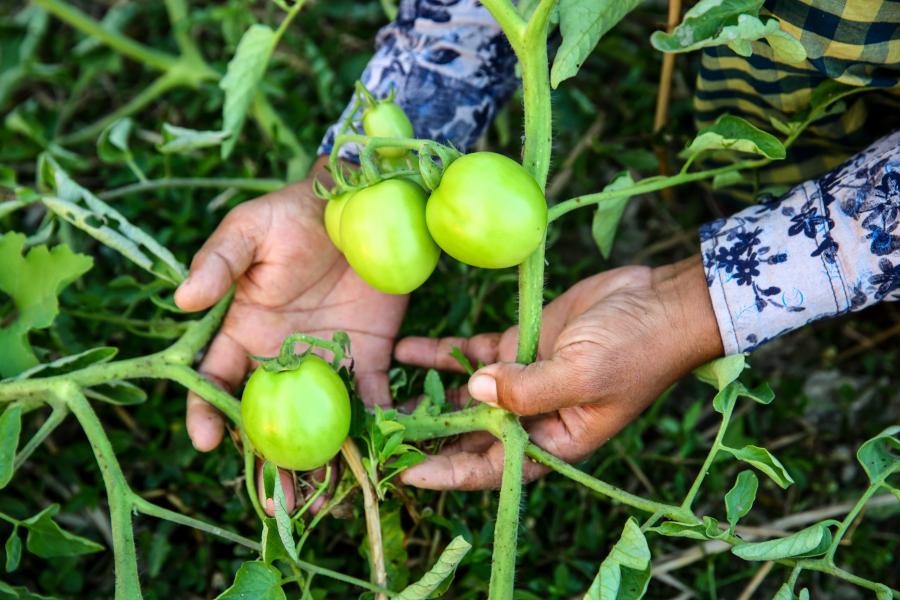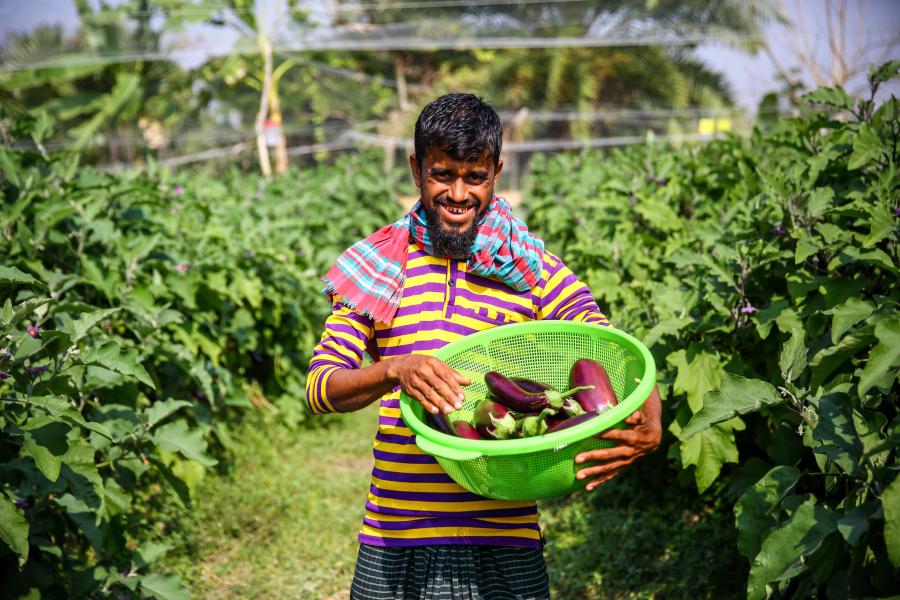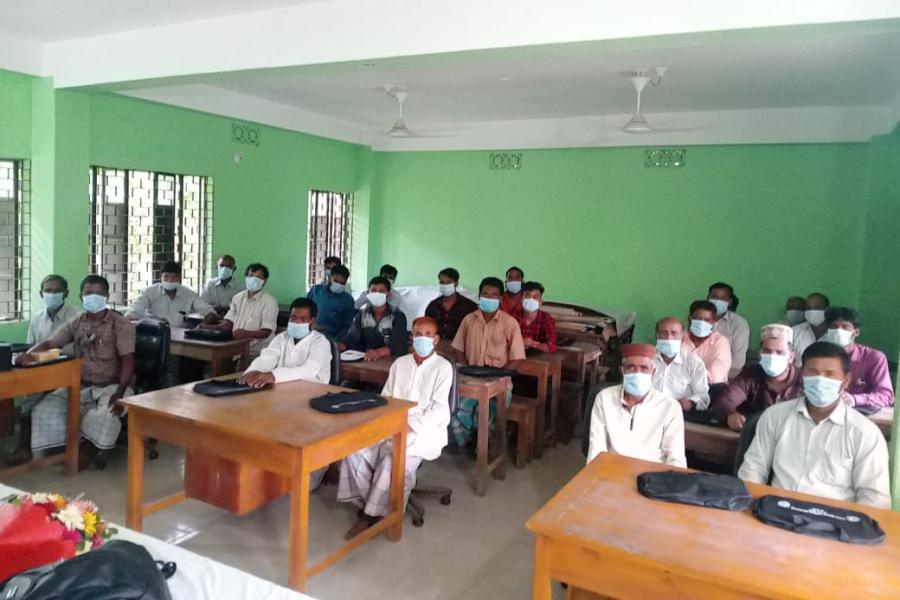Crop diversification for Bangladeshi farmers boosts climate resilience and profits

UN agencies and the Government of Bangladesh are encouraging smallholders to diversify from rice into a range of high value crops.
In Bangladesh, rice is a staple food and the country’s biggest crop. Yet smallholders, who only grow this traditional crop, typically earn a meagre and intermittent income. Worsening conditions, many of which are being exacerbated by climate change, are making rice cultivation even more difficult.

The Smallholder Agriculture Competitiveness Project (SACP) works to increase farmers’ incomes and contribute to food and nutrition security by supporting smallholders become more responsive and competitive in producing diverse, high-value crops and marketing fresh and processed agricultural products. The project, which is implemented by the Ministry of Agriculture, is jointly financed by the Government of Bangladesh and the International Fund for Agricultural Development (IFAD), with technical assistance from the Food and Agriculture Organization of the United Nations (FAO).

Mohammad Abul Kalam is one farmer, who has benefitted from the project. The 58-year-old lives in Patuakhali, a coastal district which is vulnerable to cyclones, floods, droughts, soil salinity, and soil erosion. Rice is still by far the most popular crop among the farmers there but for the farmers who do want to try something new, lack of information and resources are major barriers.
The project provided him with inputs, technology, and technical advice on how to grow vegetables better in order to generate higher returns. He was also taught how to train other farmers. He was advised to grow bottle gourd, bitter gourd, cauliflowers, and tomatoes, as market research indicated high demand for these vegetables. Through hands-on training, he learnt optimal sowing and harvesting times of these crops, greatly increasing his yields and profitablilty.
Crop diversification – the addition of new crops or cropping systems to agricultural production on a farm – is often promoted as a strategy to achieve climate resilience. By diversifying, farmers increase the range of potential food and income sources available to them. The most commonly observed barriers to crop diversification include limited output and input market development, and insufficient extension support for non-staple food crops.

Kalam is passionate about working the land and is keen to share is knowledge and experience, believing that this sharing everyone benefits. “The land I work on is mine, but I believe the entire village is mine too. All land, even barren or marginal areas, should be taken good care of. By opening up to new knowledge and innovation, we can collectively manage natural resources and produce more crops of good quality and in good quantity, which will bring the fruit of success,” he said.

Recognizing his potential, Kalam was selected as one of the lead farmers in his sub-district or upazila. Kalam now passes on his expertise to other farmers on skills such as land preparation, sowing, fertilization and pest control.
He said: “I had a cauliflower demonstration plot last year, when there was a very good harvest. I sold produce worth BDT 550,000 (US$6,480) and made a remarkable profit. This year, I’m harvesting bitter gourd from the same land supported by the project.” He added: “The government agriculture office in my upazila has been a great support for farmers like me who wanted to modernize their cropping patterns. Now I see that almost half of the farmers from my village want to grow various vegetables throughout the year”.






